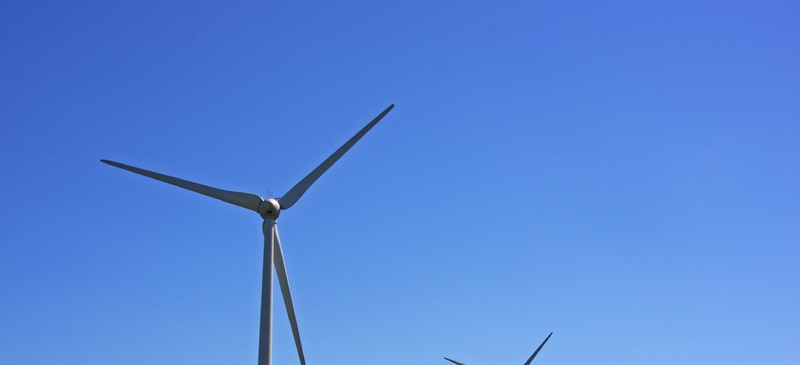
The Runway 3 red herring
Simon Jenkins, Martin Kettle and Polly Toynbee are columnists I respect and quite often agree with. So when they - and many Comment is Free contributors - join the George Monbiots of this world in attacking the proposed third runway for Heathrow, I read them carefully. I accept that there may be good reasons for opposing Runway 3, such as noise, air pollution and worries about safety. But the chief argument made by many (though not all) Guardian writers is climate change. Any government that allows Heathrow to expand cannot be serious about tackling climate change, they say.
But these commentators seem to overlook the fact that carbon emissions are a global problem and that the EU is developing a complex and sophisticated tool – the emissions trading scheme or ETS – for limiting them. Whether the UK builds Runway 3 will have absolutely no impact on European or indeed global carbon emissions. What is at stake is whether Heathrow can hold on to the hub airline business that has already started to migrate to airports with more runways, such as Schiphol, Frankfurt and Charles de Gaulle.
Now, a pure economic liberal should not mind if jobs migrate from one country to another. But I am sufficiently impure to think that a key task for the British government is to maintain sufficient employment in Britain. One strength of the British economy, its financial markets, is taking a big hit; aviation is another, and for the government to adopt policies that harmed it when unemployment is rising rapidly would be bizarre.
The man in charge of Schiphol, interviewed by the BBC on 16 January, the day of the Runway 3 announcement, was very clear: he hoped the UK would abandon the new runway so that his airport could win Heathrow's business. Anyone who uses Heathrow frequently knows that the main reason it suffers more delays than comparable airports is that capacity is stretched to the limit. A lot of foreign firms have invested in the M4 corridor because of its transport links; if Heathrow serves a declining number of destinations – and the experience of using it is unpleasant – some foreign investors may rethink (of course, many other factors will also affect investment decisions).
Only one thing will make people fly less: costlier flights. Phase three of the EU's emissions trading scheme, due to start in 2012, will extend the ETS to aviation, which is currently exempt. That will raise the price of flying. The commission will cap the total amount of carbon emitted by the aviation sector at its 2005 level; the caps in phase three of the ETS will be sectoral rather than national, as they are today. Each airline will then have to buy carbon permits in auctions.
This gives airlines a big incentive to introduce low-carbon technologies. If they increase emissions they will have to buy extra permits from those who have managed to cut their carbon output, perhaps in other industrial sectors or parts of the world, thereby pushing up the price of permits. So long as the ETS is properly managed and policed, it will curb the growth of emissions from aviation.
Barack Obama has said that he wants to create an American emissions trading scheme, and hopefully the design will allow it to be integrated with the European system. But what really matters for aircraft emissions, and every other sort, is bringing China, India, Brazil, Russia and other emerging economies into an international carbon market. The EU does have some credibility in trying to persuade others to accept a global scheme, thanks to the ambitious package of targets and measures agreed last December (including a 20 per cent cut of emissions by 2020, from 1990 levels, and a reformed and extended ETS). No other country or group of countries has yet come close to agreeing on targets for reducing emissions, or tools - like the ETS - for reaching those targets.
The reality is that carbon emissions from aircraft will grow. As one member of the UK climate change committee put it to me, almost every other kind of energy use, such as road travel or power generation, can be decarbonised; but for the foreseeable future the aviation industry, uniquely, will not be able to decarbonise (though it certainly can and will become more energy efficient). Therefore some global growth of aviation emissions need not be incompatible with British or European targets for drastically cutting overall emissions.
For the record, the think-tank that I direct has never taken money from BA or BAA. But the Centre for European Reform did publish, last May, a serious report on how the ETS should be made more stringent (and applied to aviation).
As for the politics of all this, I agree that the political symbolism of expanding Heathrow may make it harder for the government to persuade people that their lifestyles need to change. Some Guardian readers may, like George Monbiot, think about voting Conservative. But many senior figures in the Tory party are uncomfortable about their policy of blocking the new runway. One member of the shadow cabinet said to me a few months ago: "I worry that my party is becoming the party that opposes economic activity."
I would urge the Guardian's excellent columnists to take a global view of carbon emissions. As far as I can recall, none of them thought that the ambitious climate change deal agreed by EU leaders in December was worth writing about. I hope to read articles on how successfully (or not) the EU is meeting its emissions targets, how its ETS can be made to fit the future American scheme, and how Europeans and Americans can best persuade the Chinese and others to take part in a global system for cutting carbon emissions.
